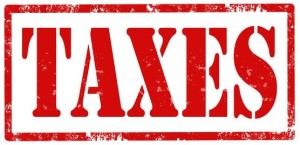 Can I file bankruptcy on my taxes?
Can I file bankruptcy on my taxes?
Yes – You can file bankruptcy on your taxes. Some taxes are dischargeable, some are not. If the tax is not dischargeable, it can be repaid through a Chapter 13 bankruptcy, or it will still be owed after the completion of a Chapter 7 bankruptcy.
After filing a bankruptcy, the IRS and Alabama Department of Revenue will be prohibited from collection during the pendency of the bankruptcy. This includes stopping any garnishments that are in place. Unless the tax is discharged or paid, collection action will resume when the case is closed.
Discharge in Bankruptcy
Your taxes may be dischargeable in bankruptcy (Chapter 7, Chapter 13 or Chapter 11) as well as the penalties and interest. Determining if you can discharge taxes in bankruptcy can be complex. However, it is possible to discharge significant income tax debt in bankruptcy if your tax debt came due 3 years before filing for bankruptcy, as long as it has been at least 2 years since you filed the tax forms and it has been 240 days since the taxes were assessed.
Discharge issues may arise if there are business taxes involved, including trust fund taxes and 100% penalties assessed for business taxes. Additional issues that could impact the discharge of taxes include making an offer in compromise, late-filed returns, tax evasion and fraud.
Payment Through Bankruptcy
Even if the taxes are not dischargable, you may be able to repay them through a Chapter 13 Bankruptcy. If the tax liability is paid in full through the bankruptcy, there will be no collection after the completion of the bankruptcy case.
We can help – Contact us Today!
If you’re interested in learning more about discharge taxes in bankruptcy or have other questions about bankruptcy options, contact the bankruptcy law attorney at the Semmes Law Firm and let us guide the way.
